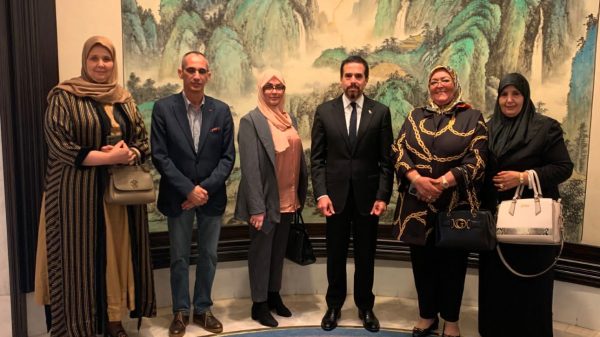Solvency II, the prudential regime for insurance and reinsurance undertakings in the EU is portrayed as a global ‘gold standard’. An extraordinary case involving the Romanian Financial Supervisory Authority, ASF, and the insurance operator, Euroins Romania which has played out since the beginning of this year badly tarnishes the ‘gold standard’ claim – writes Dick Roche.
The case also raises a red flag about the European Insurance and Occupational Pensions Authority, EIOPA, one of the EU’s main financial regulators and questions how the Authority defines its role and whether it is fit for purpose.
The Background
In 2019 Romania’s motor insurance industry was facing a major crisis. Romania’s largest provider of motor third-party liability insurance City Insurance, with over three million policies on its books, was facing serious financial difficulties.
The Romanian Financial Supervisory Authority, ASF put pressure on Euroins Romania to take over City Insurance. Euroins Romania was part of the Euroins Insurance Group (EIG), one of the largest independent insurance groups in Central and Eastern Europe. EIG is owned by Eurohold Bulgaria AD a company listed on the Warsaw and Sophia stock exchanges.
Viewing City Insurance as essentially worthless EIG resisted the ‘request’ from ASF. That did not go down well. ASF mounted an unrelenting campaign against the company which culminated on 2nd February 2023. On that date, ASF issued an updated Permanent Control Report on Euroins Romania which held that the company had a €400mn capital deficiency a complete departure from the position taken in an ASF report issued just three months earlier.
Reactions
The ASF announcement of 2nd February triggered a series of reactions. EIG accused “senior and middle management employees” from ASF and “persons who caused the crisis with the Romanian insurance company City Insurance” of making an “organised attack “ against Euroins Romania.
EIG contacted EIOPA requesting an “impartial independent expert review of Euroins Romania — carried out under the guidance of EIOPA, ASF, and the Bulgarian regulator”. It also announced new reinsurance arrangements for Euroins Romania aimed at fulfilling the new ASF requirements on reinsurance.
The Bulgarian Financial Supervision Commission (FSC) made a number of contacts with EIOPA outlining concerns regarding the actions of the Romanian regulator and endorsing the newly concluded Euroins Romania reinsurance contract.
The European Bank for Reconstruction and Development (EBRD) also entered the debate. Following the collapse of City Insurance ERBD became a shareholder in EIG with the intention of “stabilising (Romania’s) insurance sector while providing comfort to customers, regulators, and suppliers.”
EBRD questioned the assertion of a capital deficiency in Euroins Romania, pointing out that the previous ASF report had confirmed the company’s capital position and that the company’s reinsurance contracts had been essentially approved by ASF for years. It also pointed out that if a liquidity problem existed or if additional capital was required remedial actions could have been taken.
EBRD with EIG approval also appointed a leading global actuarial accounting firm to conduct an independent assessment of Euroins Romania’s position. The Romanian Ministry for Finance and ASF were asked by EBRD to hold off on any action until the expert actuarial assessment was finalised.
That request was ignored. On 17th March, ASF announced its decision to revoke Euroins Romania’s licence and to start insolvency proceedings against the company. The announcement was made without consulting the College of Supervisors, a requirement under Solvency II, one of a series of breaches of the Directive by ASF.
ASF Switches its Story.
The following day, an ASF spokesman explained that the regulator in taking its action was “not talking — of a market bankruptcy of a company that goes bankrupt due to economic reasons. The decision to withdraw the authorization to operate at this company is a measure designed to penalize behaviour” – a dramatic shift in emphasis from the argument that Euroins Romania had a major capital deficiency or an issue with reinsurance.
The change in ASF justification for acting against Euroins Romania had a significant impact. By stipulating that action was being taken to “penalise behaviour” ASF ensured that its action had immediate effect.
Had ASF proceeded on the basis of capital inadequacy, Euroins Romania would have had 30 days to come up with a remedial plan and 60 days to implement it. There is no reason to doubt that the company, backed by the resources of Eurohold and supported by EBRD could put together a well-financed remedial plan. By taking the line that it did ASF closed off that opportunity.
EIOPA’s ‘Secret’ Report
Having rejected the EIG proposal of an independent external review EIOPA decided to carry out its own examination of Euroins Romania.
EIOPA did not invite either EIG or Euroins Romania to submit material or make any input to the examination. In stark contrast, ASF was consulted. The EIOPA team drafting the report depended almost entirely on ASF for material. Whether there was any independent verification of the data used in the report is not clear.
This extraordinary approach meant that ASF if not the sole judge in its own case was the most active member of the jury.
When completed, the EIOPA report was scheduled for discussion at a College of Supervisors meeting on 5th April. EIG, now aware of the report’s existence, requested to see it. EIOPA refused access claiming that the report’s contents were confidential and continued to refuse access until May when it gave the Bulgarian regulator permission to share the report with EIG.
The double standard applied by EIOPA was on show again directly after the meeting of 5th April.
Within hours of the meeting selective material from the report was posted on Romanian news sites. The Director of ASF released specific details from the report – a violation of EIOPA’S confidentiality claims. EIG complained about this to EIOPA. The complaint got nowhere. EIOPA failed to reply for sixteen weeks when a five-line letter signed by the Chairperson of EIOPA, issued assuring EIG that EIOPA “takes great care to comply with its founding regulation —- while pursuing its mandate”, a nonsensical and ludicrous response which ignored the complaint.
EIOPA’s skewed approach to ‘confidentiality’ was demonstrated again when Euroins Romania appealed the ASF decision in the Bucharest Court of Appeal. EIOPA sanctioned ASF to use the EIOPA report in preparing its defence in the court but instructed that the report must remain confidential to parties other than the court, extraordinary behaviour for an EU agency. Knowing that EIOPA ‘had its back’ strengthened ASF going into the Romanian courts.
EIOPA’s approach to its report not only tipped the scales in favour of ASF it also prevented the stark differences between the report’s findings and those independent expert report commissioned by EBRD/EIG from public scrutiny.
The EBRD/EIG commissioned report concluded that as of the end of 2022 Euroins Romania was, from a quantitative perspective, solvent with no capital gap and that the company’s reinsurance contracts met the requirements of Solvency II.
EIOPA’s assessment concluded that “Euroins Romania had a deficiency of the net best estimate for the MTPL business at the reference date of 30 September 2022” which was in the range between EUR 550 million and EUR 581 million”.
The extraordinary difference should have given EIOPA pause for thought: it didn’t.
Flawed, Narrowly Focused, and Partisan.
Throughout the saga initiated by ASF in February, EIOPA’s approach has been flawed, narrowly focused, and partisan. In opposing an independent objective assessment of Euroins Romania’s position EIOPA cast itself in a partisan role as defender of ASF.
EIOPA’s narrow bureaucratic interpretation of Solvency II EIOPA meant that ASF was never really questioned. Third parties and even EIOPA itself could not “interfere” – even where ASF openly stepped over the line.
The irony of EIOPA’s position is that it interfered. By excluding EIG and Euroins Romania, from the technical assessment process, by depending on information and technical data from ASF to produce its report, and by not allowing EIG to see its report at a critical point when the company was mounting its case in Romanian courts, EIOPA was interfering.
There have been efforts in the EU Parliament to question what has happened, however, the Commission like EIOPA has taken the line that responsibility for assessing the facts in the case lies exclusively with ASF. Like EIOPA, the Commission has stonewalled. Questions raised by MEPs have received formulaic and in some cases inaccurate or misleading responses.
By hiding behind the mantra that ASF has sole responsibility for overseeing Euroins Romania the Commission, like EIOPA ignored the possibility that ASF in its analysis could be wrong as a result of incompetence, animus, or even criminal intent.
The triumph of bureaucracy over common sense.
The ASF decision to kill off Euroins Romania – the fourth insurance company in a row to be put into liquidation in Romania in as many years – came with very real economic and social consequences.
In addition to the shareholders and staff, millions of insurance policyholders are directly impacted. Hundreds of companies with insurance claims outstanding are also affected – drawing further on Romania’s already stretched Guarantee Fund which will likely require support from the taxpayer.
The departure of another major insurance provider will mean less competition and higher insurance costs. Potential knock-on effects include the risk of further financial volatility in an economy dealing with the aftermath of COVID-19, the spill over from the war in Ukraine, and with fiscal and current account deficits.
In the longer term, the forced closure of Euroins Romania exposes the Romanian state to potential major damages for the destruction of the value by EIG.
Given the magnitude of the potential problems that flow from the closure of Euroins Romania and bearing in mind that a resolution proposal was on the table when the axe fell on Euroins Romania, this represents a triumph of bureaucracy over common sense.
EIOPA’s mission is to promote a sound regulatory framework and consistent supervisory practices in insurance across the EU, to protect the rights of policyholders, insurance beneficiaries, and wider society. The Euroins Romania case represents a spectacular failure by EIOPA to fulfill any aspect of that mission. It raises the question is EIOPA fit for purpose?
Dick Roche is a former Irish Minister for European Affairs and a former Minister for Environment. As the Irish Minister for European Affairs.






















